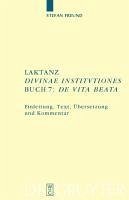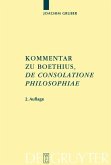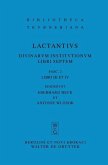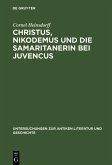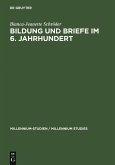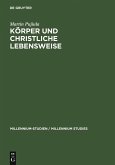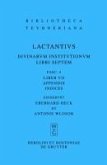Book seven, "Of a happy life" (De uita beata), closes Lactanius' (AD 250-325) "Introduction to Christianity" (Diuinae institutiones). In it the church father, who was renowned as a Christian Cicero, describes the end of the world, the thousand year Kingdom of God and the Last Judgment, from a standpoint influenced by the Christian persecutions. This significant text, which offers insight into early Christians' views of the end of the world, is presented together with an introduction, translation (the first since 1787) and an extensive commentary.
Dieser Download kann aus rechtlichen Gründen nur mit Rechnungsadresse in A, B, BG, CY, CZ, D, DK, EW, E, FIN, F, GR, HR, H, IRL, I, LT, L, LR, M, NL, PL, P, R, S, SLO, SK ausgeliefert werden.
"Cette exploration minutieuse du livre VII est en même temps une excellente introduction à la methode et à la culture de Lactance, bon miroir de l'état des esprits au moment où, avec Constantin, le monde gréco-romain va entrer dans une ère nouvelie."
Hervé Savon in: L'Antiquité Classique 79/2010
Hervé Savon in: L'Antiquité Classique 79/2010

